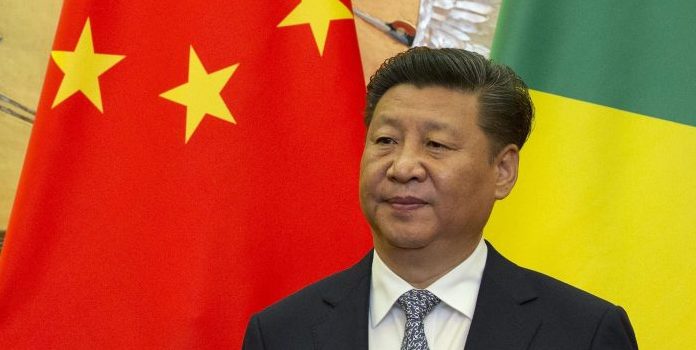(Headline USA) In the weeks since Communist China’s dictator Xi Jinping claimed a third five-year term as president, setting him on course to remain in power for life, leaders and diplomats from around the world have beaten a path to his door. None more so than those from Europe.
French President Emmanuel Macron made a high-profile state visit to Beijing last week accompanied by European Commission President Ursula von der Leyen, just days after Spanish Prime Minister Pedro Sanchez.
German Foreign Minister Annalena Baerbock arrived in the northeast port city of Tianjin on Thursday, following a visit by Chancellor Olaf Scholz in November. The European Union’s foreign policy chief, Josep Borrell, would have been in China this week, too, but he tested positive for COVID-19.
For the 27-nation trading bloc, the reasons to head to China are clear.
As an ally of Russian President Vladimir Putin, Xi could play a pivotal role in helping to end the war in Ukraine. The conflict has dragged on for over a year, driven up energy prices and inflicted more damage on economies struggling to rebound from the coronavirus pandemic.
The Europeans want Xi’s help. They want him to talk to Ukraine’s president as well as Russia’s.
The EU also fears that Xi might supply weapons to Russia. They’ve been particularly disturbed by Putin’s plans to deploy tactical nuclear weapons to Belarus. That announcement came just days after Xi and Putin met to cement their “no-limits friendship.”
Baerbock said the war is “top of my agenda.” Praising Beijing for easing tensions between Saudi Arabia and Iran, she said that “its influence vis à vis Russia will have consequences for the whole of Europe and for our relationship with China.”
At the same time, the EU is deeply concerned about a military escalation in the Taiwan Strait. China launched war games just after Macron left. The Europeans mostly see the island in economic and pro-democracy terms.
So the visits are meant to reassure Xi of respect for Beijing’s control over all of Chinese territory and to urge calm. They also highlight the challenge the U.S. faces as it tries to build a coalition of countries to ramp up pressure on Beijing over its expansionist policies.
“The key is that we have every interest, both in Europe and in China, to maintain the status quo,” a senior EU official said Wednesday, briefing reporters on plans for Borrell’s sensitive trip on condition that he not be named. “It has worked well for all sides for decades.”
Beyond the geopolitics lies business. The EU and China did more than 2.3 billion euros’ ($2.5 billion) worth of trade every day last year, and the Europeans don’t want to endanger that. However, the EU’s trade deficit has more than tripled over the past decade, and it wants to level the business playing field.
It’s also desperate to limit its imports of critical resources from China, like rare earth minerals or hi-tech components, after painfully weaning itself off its biggest, and most unreliable, gas supplier, Russia.
Over the past two decades, the Chinese government has often used its economic heft to pry France, Germany and other allies away from the U.S. on issues ranging from military security and trade to human rights and Taiwan.
Beijing has called repeatedly for a “multi-polar world,” a reference to Chinese frustration with U.S. dominance of global affairs and the ruling Communist Party’s ambition to see the country become an international leader.
“There has been a serious deviation in U.S. understanding and positioning about China, treating China as the primary opponent and the biggest geopolitical challenge,” the Chinese foreign minister, Qin Gang, told reporters last month.
“China-Europe relations are not targeted, dependent, or subject to third parties,” he said.
Macron’s visit appeared to illustrate that Qin’s view isn’t just wishful thinking. As tensions rise between Beijing and Washington, the French leader said, it is important for Europe to retain its “strategic autonomy.”
“Being a friend doesn’t mean that you have to be a vassal,” Macron said Wednesday, repeating a remark from his trip that alarmed some European partners. “Just because we’re allies, it doesn’t mean (that) we no longer have the right to think for ourselves.”
Adapted from reporting by the Associated Press

